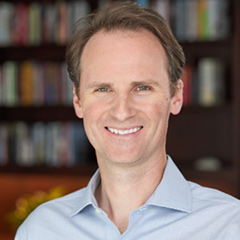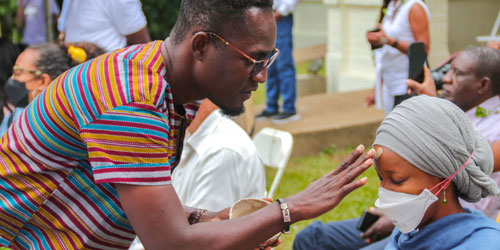MacArthur President John Palfrey shares reflections and learnings on our goal to reimagine philanthropy through the Equitable Recovery Initiative.
Our Equitable Recovery Initiative started as an effort to respond to racial injustice and the devastating economic effects of COVID, but it also gave us a unique opportunity to disrupt the ways we work in order to make MacArthur’s processes more fair and unbiased.
Many of the traditional practices in philanthropy, including our organizational practices, and our grantmaking process, have helped maintain inequities in the United States and around the world. So, with our Equitable Recovery grantmaking, we made an explicit and concerted effort to change those practices, systems, and structures to support more just, equitable, and resilient communities.
A report based on reflections from our Staff and external advisors and a grantee demographic survey summarizes the first year of our Equitable Recovery grantmaking efforts and offers some early learnings.
We share it now, in an effort to be transparent about how we worked, the decisions we made, and the early lessons we have learned.
Disrupting Traditional Philanthropic Practices
Historically, philanthropy has perpetuated racial oppression. Philanthropic organizations typically give less money to Black, Indigenous, and People of Color (BIPOC)-led organizations and place less trust in their work. Our aim was to begin correcting this bias with the Equitable Recovery Initiative.

Download accessible chart data ›
Fifty-two U.S.-based grantee organizations responded to an August 2021 survey. Of the organizations that responded, 83 percent of grant dollars went to organizations that are BIPOC-led or self-identify as BIPOC. However, we heard from Staff that we could have dispersed grants to a wider variety of racial and ethnic groups. We will continue to look for ways to create more equitable grantmaking.
Disrupting Organizational Practices
Status quo organizational practices tend to rely on the same networks and ways of thinking. The result is that young organizations or organizations outside our established networks have less opportunity.
In the Equitable Recovery Initiative, we used more collaborative grantmaking practices that led to new partnerships. External advisors played an essential role in shaping our approach, outreach, and funding decisions. With their feedback and expanded networks, almost two-thirds of grantee organizations were first-time MacArthur grant recipients.
Disrupting Grantmaking Processes
Philanthropy in general, including MacArthur, has not done enough to reduce grantee burdens. Funders place excessive expectations on grant seekers, from the application process to reporting requirements.

Download accessible chart data ›
In this initiative, we prioritized practices that centered the grantee experience. We accepted proposals for general operating grants that were previously submitted to other funders, saving a grantee from writing a new application. We offered grantees the option to provide oral reporting through interviews rather than written reports. Sixty-five percent of the grants were intentionally in the form of general operation support or flexible spending. This gives grantees the opportunity to worry less about the organization’s survival and focus more on lifting up their communities. These practices also demonstrate trust in organizations to make decisions about how to use their funds.
Next Steps
The ways we work have intended and unintended consequences. The Equitable Recovery Initiative and our bond offering was a one-time effort in response to once-in-a-century crises. But lessons from our Equitable Recovery grantmaking and non-grantmaking activities can be applied across our work and the field of philanthropy.
Our early findings show our efforts to disrupt how we work met some of our goals and intentions, but we know we need to learn more from other voices and data. We have contracted with Creative Research Solutions and BECOME (CRS-BECOME) to conduct an external evaluation of the initiative, and we will share their findings.
We will use this report and future findings to help us learn about our impact, both intended and not, and find new opportunities to make our work more equitable and inclusive.




